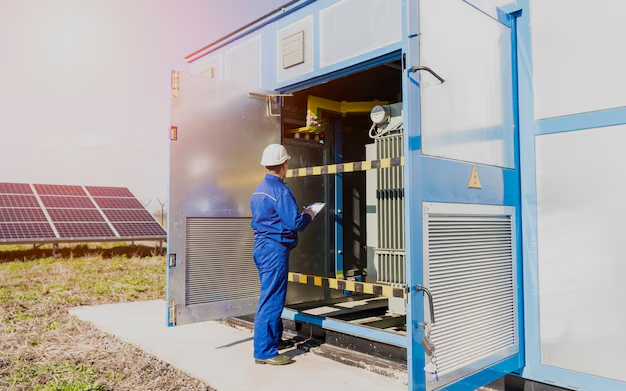Can a 1500-Watt Generator Power Your Refrigerator? Everything You Need to Know
When the power goes out, whether due to severe weather or unexpected outages, a portable generator can be a lifesaver. However, the question often arises: Can a 1500-watt generator reliably power a refrigerator? This common concern is not just about convenience but also about preserving perishable foods and saving money. In this guide, we’ll delve into whether a 1500-watt generator is sufficient to keep your refrigerator running and explore related topics that enhance your understanding of the subject.
Understanding Refrigerator Power Requirements
How Much Power Does a Refrigerator Use?
Refrigerators are crucial appliances in any household, tasked with keeping food fresh and safe for consumption. But how much power do these appliances typically use?
- Starting and Running Watts: A standard refrigerator doesn’t draw a constant amount of power. Instead, it requires more electricity to start up, known as starting watts or surge watts, before settling into a steady-state power draw, called running watts.
- Typical Power Ratings: Most modern refrigerators use between 100 and 250 running watts. However, starting watts can range between 800 to 1200 watts, depending on the model and age of the appliance.
Understanding these two power ratings is pivotal. If your generator cannot supply the required starting watts, your refrigerator might not start, even if it has enough running watts to function.
Key Factors Affecting Refrigerator Power Consumption
Several variables can influence the power your refrigerator consumes:
- Age of the Appliance: Older models are generally less efficient and may require more power both to start and run.
- Size and Capacity: Larger refrigerators typically need more power than smaller ones.
- Energy Efficiency Rating: Refrigerators with higher energy efficiency ratings (like ENERGY STAR-rated appliances) use less power.
- Ambient Temperature: The surrounding temperature can affect the refrigerator's power draw. Warmer environments force the fridge to work harder to maintain cool temperatures inside.
Can a 1500-Watt Generator Handle a Refrigerator?
Calculating Power Needs
When assessing if a 1500-watt generator can power your refrigerator, consider both starting and running watts. A 1500-watt generator should theoretically handle refrigerators with running watts up to 1500, but remember the surge associated with startup.
- Starting Surge: If your refrigerator requires up to 1200 starting watts, then a 1500-watt generator has enough juice to get it going.
- Simultaneous Usage: Keep in mind, if the generator is also powering other devices, their wattage needs to be included in the total load, potentially limiting operational capacity for your fridge.
Efficient Energy Management
Strategically managing how you use your generator is essential. Here are some practical tips:
- Minimize Simultaneous Load: Avoid running multiple high-wattage appliances at the same time. Prioritize essentials like the refrigerator to maximize efficiency.
- Energy Efficient Practices: Keep the refrigerator stocked, as a full fridge retains cold better than an empty one, reducing how often the compressor must run.
- Proper Generator Maintenance: Ensure your generator is in good condition, which helps it deliver full output and operate efficiently.
Practical Example Scenario
Imagine a power outage scenario: You have a 1500-watt generator ready. You’ve got two primary concerns—the refrigerator and maybe a few lights or small electronics:
- Starting the Refrigerator: It requires 1200 watts at startup. Now, it’s running on about 200 watts. This leaves you with approximately 1300 watts free after the start-up surge.
- Managing Additional Loads: With this surplus, you can run a few LED lights (typically requiring 10 watts each) and charge your phone or run a small fan without exceeding capacity.
Related Topics: Generators and Home Appliance Compatibility
Types of Generators
Choosing the right generator involves understanding your power needs and the functionality each type offers:
- Inverter Generators: Known for being quieter and more fuel-efficient, making them ideal for sensitive electronics.
- Traditional Portable Generators: Offer reliable power but tend to be noisier and less fuel-efficient than inverters.
- Standby Generators: Permanently installed, they power your home automatically during an outage but come at a higher cost.
Considerations for Generator Purchase
Purchasing the right generator isn’t just about wattage. Here’s what else you should consider:
- Fuel Type: Generators may run on gasoline, propane, diesel, or natural gas. Consider fuel availability and storage when choosing.
- Noise Levels: If quiet operation is a priority, inverter generators are typically the best choice.
- Portability: If you require mobility, consider weight and ease of movement.
Ensuring Refrigerator and Generator Safety
Safety Precautions
Ensuring safe operation of both your refrigerator and generator is critical:
- Proper Ventilation: Never operate generators indoors to prevent carbon monoxide buildup.
- Generator Load Management: Avoid overloading the generator as this reduces its service life and could cause dangerous conditions.
- Correct Connection: Ensure safe connections using heavy-duty extension cords and follow the manufacturer's guidelines to prevent electrical hazards.
Maintenance Practices
Regular maintenance extends the lifespan of your appliances and generator:
- Clean and Dust-Free: Keep the refrigerator's coils clean to maintain energy efficiency and prevent overheating.
- Consistent Fuel Monitoring: Ensure you have sufficient fuel, especially if the outage is prolonged.
Quick Tips and Takeaways 📝
- 🔋 Know Your Watts: Ensure your generator provides both the running and starting watts for your refrigerator.
- 📉 Load Management: Limit additional devices when starting large appliances to prevent overloading.
- 🛠️ Maintenance is Key: Regular upkeep for both your generator and refrigerator maximizes efficiency and longevity.
- ⚠️ Prioritize Safety: Follow all operational and safety guidelines to avoid hazards.
Embarking on a power management strategy with a generator involves knowing both its capacities and the needs of your appliances. With a 1500-watt generator, most refrigerators can be safely and effectively powered when precautions are observed, providing peace of mind and continuity during unexpected power outages.

